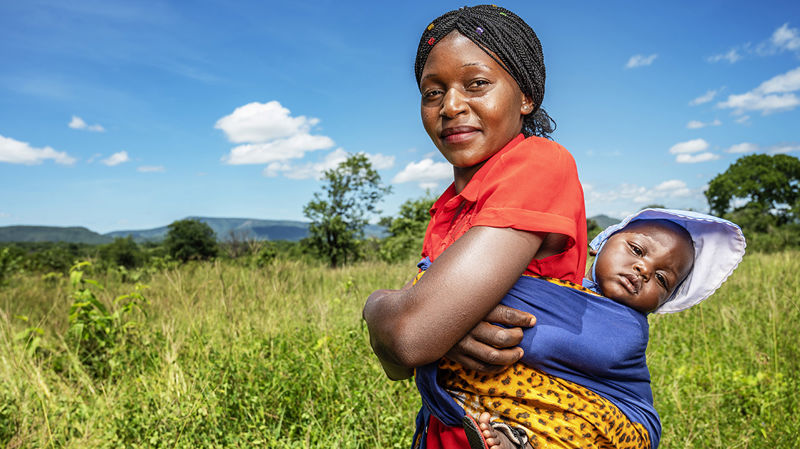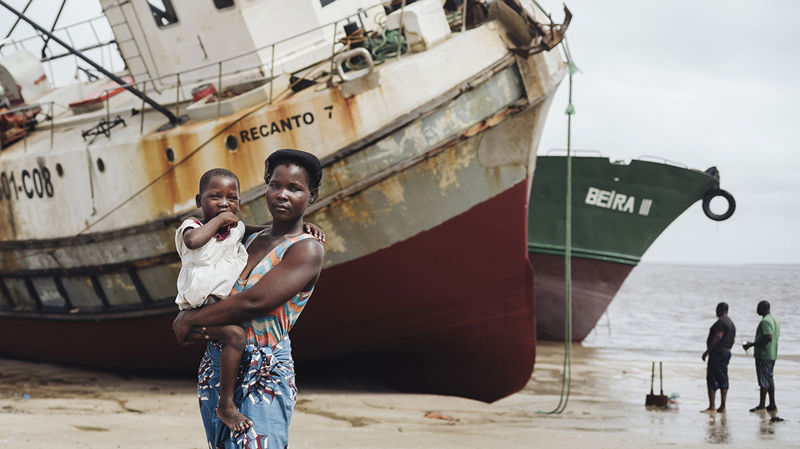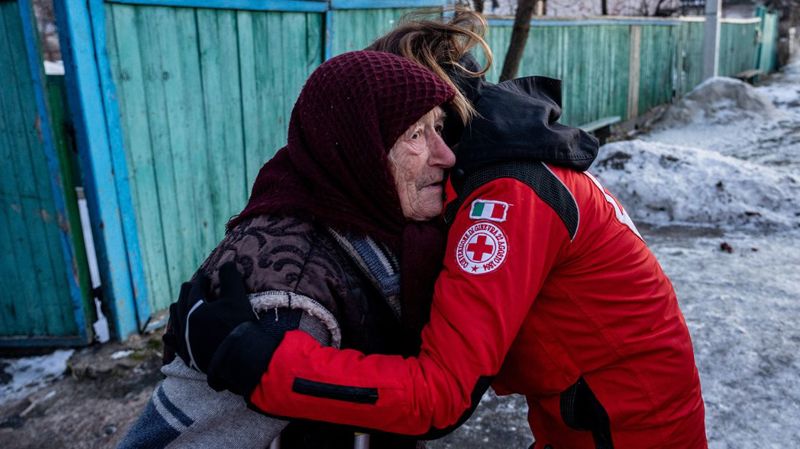Climate change

Climate change is the most significant global challenge of our time. The humanitarian impacts of climate change are expected to intensify rapidly.
Communities around the world require increasing amounts of support in adapting to climate change and coping with extreme weather phenomena. Climate change is particularly affecting the livelihoods and health of communities and vulnerable people in poor countries, even though they are the least to blame for climate change.
Greenhouse gas emissions bolster the greenhouse effect
Greenhouse gases, such as carbon dioxide, methane, nitrogen oxide and water vapour, cause the greenhouse effect. Greenhouse gas emissions operate similarly in the atmosphere as glass panes in a greenhouse: they let the light radiation from the sun through, but trap all the radiation that has turned into heat and prevent it from re-entering space.
Human activities have accelerated the greenhouse effect at an unprecedented rate, and this is referred to as climate change. The carbon dioxide content of the atmosphere has continued to increase over the past 300 years, because humans have used fossil fuels, such as oil, coal and natural gas, as their energy source. As a result of the carbon dioxide content of the atmosphere, heat cannot re-enter space, causing global warming.
Climate change increases disasters
Climate change increases catastrophes and extreme weather events. The sea level may rise by more than 90 cm over the next hundred years, threatening coastal regions. More than half of the world's population now live in cities and coastal areas. The rising sea level threatens urban structures and makes farming impossible in many coastal areas.
Climate change contributes to changes in rainy seasons and droughts. Droughts are longer and more severe in dry areas. In some areas, rainfall may increase, which increases devastating floods. Rainfall becomes irregular and increasingly difficult to predict. This makes the production of food more challenging in many areas. Drought makes farming and grazing of livestock impossible in larger and larger areas.
Climate change also affects other natural hazards. Hurricanes, for example, increase and intensify as the sea water temperature rises.
Climate change poses a threat to human health
People's health is threatened by intense heat waves, and extensive areas can be rendered uninhabitable. Drought reduces clean drinking water, leading to an increase in infectious diseases. Water shortage also leads to poor hygiene and sanitation, which increases the spread of diarrhoea and cholera, for example.
The Red Cross prevents the effects of climate change
The Red Cross:
- supports local associations in preparing for extreme weather phenomena and the resulting crises
- supports National Societies in assessing climate risks and the needs of those in a vulnerable position and in responding to them
- works to make weather forecasts and the warnings issued by advance warning systems available to everyone and ensures that they lead to action being taken
- influences national and international decision-making concerning climate change
- reduces emissions in all its activities.
The Red Cross helps with the consequences of climate change
The Red Cross takes the consequences of climate change into account in all its international activities.
Among other things, the Red Cross:
- promotes climate-resilient agriculture, e.g. the cultivation of new varieties resistant to heat
- provides humanitarian aid in the event of disasters and conflicts caused by climate change to safeguard people's basic needs, such as food, clean drinking water, shelter and health care services
- responds to health problems caused by climate change, such as mitigating the impact of extreme heat waves, supporting access to clean drinking water and providing health services during disease outbreaks.


Development cooperation

Humanitarian aid
